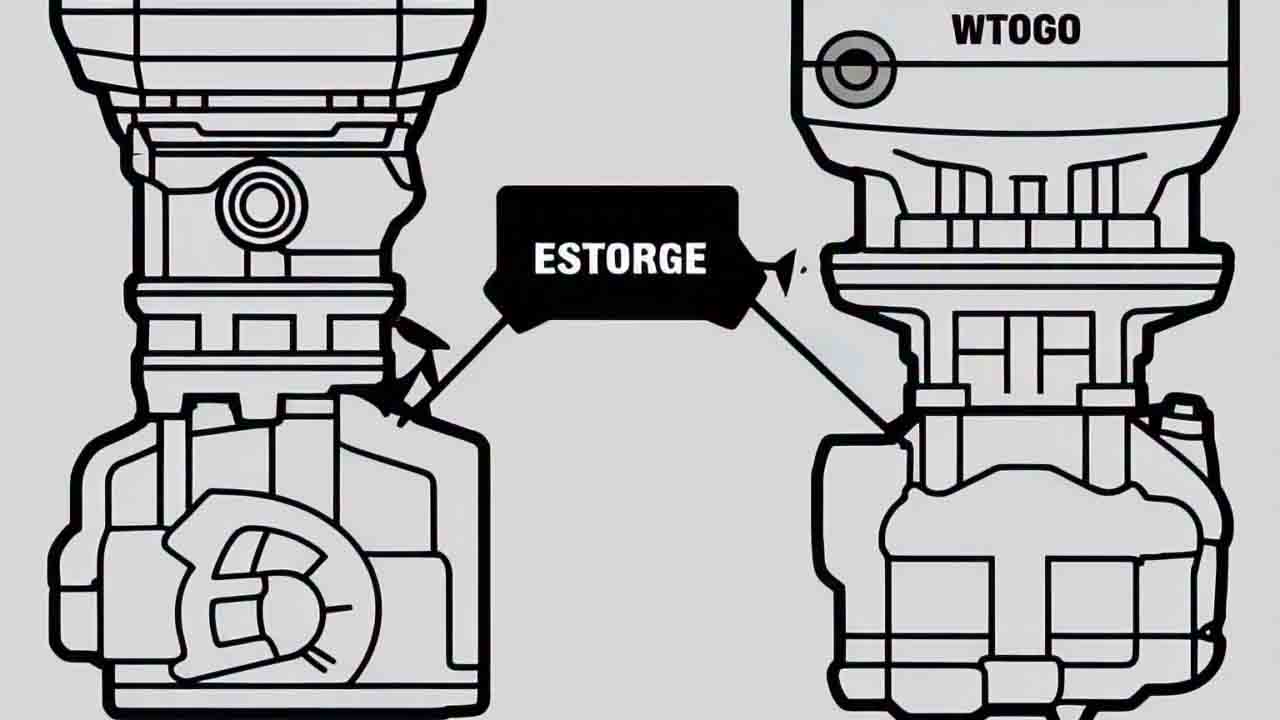
Dieselspecialists – When it comes to diesel engine technology, one of the most fundamental distinctions lies in the choice between 2-Stroke vs. 4-Stroke engines. While both engine types serve similar functions in powering vehicles, machinery, and ships, the mechanics and advantages of each vary significantly. This article will explore the key differences between these two types of diesel engines, focusing on their operational processes, applications, and performance characteristics.
At the core of the 2-Stroke vs. 4-Stroke debate is the fundamental design of the combustion cycle. In a 2-Stroke diesel engine, the cycle is completed in just two strokes of the piston, compared to four strokes in a 4-Stroke diesel engine. This difference directly impacts the engine’s efficiency, power output, and overall performance.
A 2-Stroke diesel engine completes one full combustion cycle in only two strokes of the piston one compression stroke and one exhaust stroke. This design creates a simpler, more compact engine, which benefits marine and industrial applications that require high torque at low speeds. The efficiency of a 2-Stroke diesel engine allows it to generate more power per unit of fuel, making it ideal for environments that require heavy-duty work.
“Anita Yusof: Malaysia’s Motorcycle Trailblazer”
On the other hand, a 4-Stroke diesel engine involves a more complex four-stroke process: intake, compression, power, and exhaust. This design offers greater fuel efficiency and lower emissions. Making 4-Stroke engines the preferred choice for most modern light-duty vehicles and commercial trucks. The additional strokes in the combustion cycle help achieve more complete combustion. Reducing harmful emissions and providing better fuel economy over longer periods of operation.
Vehicles, commercial trucks, and smaller machinery typically use 4-Stroke diesel engines. 2-Stroke diesel engines typically power marine applications, large industrial machines, and high-performance machinery. These engines thrive in environments that require high torque and compact engine sizes. For instance, ships and large-scale generators often rely on them, benefiting from their ability to produce power at low speeds and their robust nature.
4-Stroke diesel engines are typically found in vehicles, commercial trucks, and smaller machinery. These engines are more efficient in fuel consumption and generate fewer emissions. Making them better suited for road use and city environments. Many modern passenger cars, buses, and delivery trucks rely on 4-Stroke diesel engines to meet both performance standards and regulatory emission requirements.
One of the most significant advantages of 4-Stroke diesel engines is their superior fuel efficiency and lower emissions. The four-stroke process allows for more complete combustion, which reduces the amount of unburned fuel expelled as exhaust. This is a crucial factor in meeting modern environmental standards, as 4-Stroke engines generally produce fewer pollutants. Including nitrogen oxides (NOx) and particulate matter.
2-Stroke diesel engines are known for their higher emissions. As the shorter combustion cycle results in less thorough burning of the fuel. However, they compensate for this by offering greater power output relative to engine size. Which is why they are favored for high-torque applications. The trade-off here is that while they deliver more immediate power. They also tend to be less efficient and produce more exhaust gases.
In the ongoing discussion of 2-Stroke vs. 4-Stroke diesel engines. It is clear that each engine type offers unique advantages depending on the application. While 2-Stroke diesel engines are perfect for heavy-duty machinery and marine environments that demand high torque and compactness. 4-Stroke diesel engines are better suited for vehicles and applications requiring fuel efficiency and lower emissions. Understanding these key differences helps consumers and industries make informed decisions when choosing the right engine for their needs.
“Shaping Tomorrow: Global Alliance Launches to Train Next-Gen”
Dieselspecialists - Diesel trouble signs are often subtle at first, but they indicate potential issues that, if left unresolved, could…
Dieselspecialists - Revolutionizing Diesel Parts has become the hallmark of innovation in the automotive sector, especially within the diesel engine…
Dieselspecialists - Diesel Engines Drive On even as passenger car sales using diesel technology continue to decline. According to the…
Dieselspecialists - Cummins Unveils Next-Gen X15 diesel engine at Bauma 2025 in Munich, marking a significant leap forward in the…
Dieselspecialists - Smart Diesel Engines are redefining the future of vehicle powertrains with unprecedented control and efficiency. These innovative systems,…
Dieselspecialists - Unleashing power in diesel engines, especially in trucks and high-performance vehicles, has become synonymous with increased efficiency and…